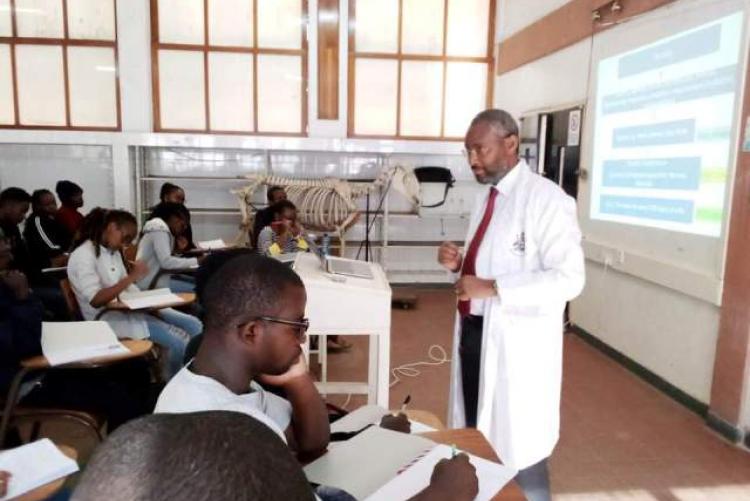At the University of Nairobi, lecturers understand that competence requires more than just the acquisition of technical skills. They are aware that it involves applying relevant knowledge, and having the confidence and ability to transfer what has been learnt to a variety of contexts and new unpredictable situations.
After the orientation exercise, all was set for learning. The first-year veterinary medicine students started off with an introduction to veterinary medicine course that serves to build their foundation into the sophisticated world of veterinary medicine.
At the University of Nairobi, lecturers understand that competence requires more than just the acquisition of technical skills. They are aware that it involves applying relevant knowledge, and having the confidence and ability to transfer what has been learnt to a variety of contexts and new unpredictable situations. For such reasons, the first step matters.
Student-centred teaching approach is given high priority. Our faculties understand that engaging students in the learning process increase their attention and focus. It also motivates them to practice higher-level critical thinking skills and promotes meaningful learning experiences.
Learning is assessed through performance. Instructors strive to understand how students apply the knowledge gained in their daily activities. Student engagement is promoted through active learning and some of the strategies involved are, brief question-and-answer sessions, discussions that are assimilated into the lecture sessions, experiential learning events, hands-on activities, and continuous assessment tests.
- Log in to post comments

